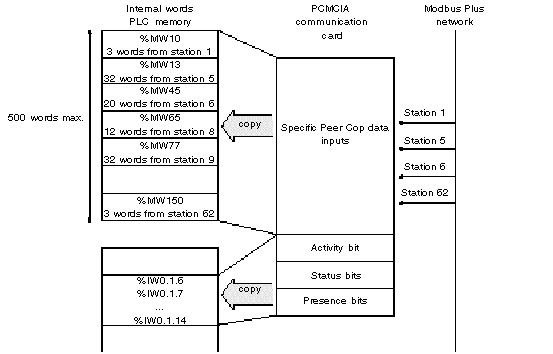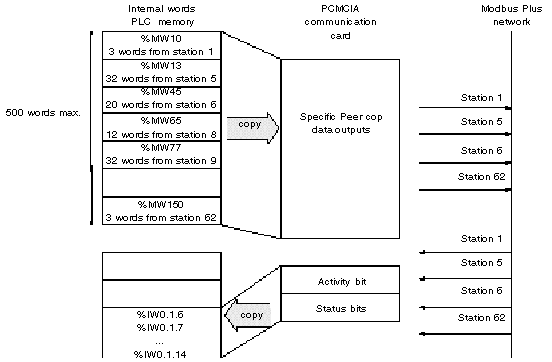The Peer Cop service is a mechanism for automatic exchange between stations connected on the same Modbus Plus segment.
This service makes it possible to control remote inputs / outputs on a continuous basis by implicit exchanges.
Premium and Quantum PLCs are capable of managing this service on a Modbus Plus network
Premium PLCs support two types of Peer Cop transfer:
-
specific inputs,
-
specific outputs.
Specific Inputs and Outputs
Specific inputs and outputs are point-to-point services using the multicast (multi-station) protocol. Each message contains one or more destination addresses for data transmission. This mode of operation makes it possible to exchange data with several stations without them having to be repeated.
Three types of report are associated with specific inputs and outputs:
-
An activity bit provides information on the availability and validity of the status bits.
-
Status bits (one bit per station):
-
ensure consistency between the number of specific inputs configured and the number of specific inputs received,
-
indicate if the specific inputs have been received before the Timeout.
-
Presence bits (one bit per station) indicate if the specific inputs have been refreshed.
NOTE: The presence bits are only valid for the specific inputs.
The data blocks are copied in their entirety from the PCMCIA communication card to the internal word space, reserved at the time of configuration.
In the following example, the address of the first internal word is %MW10:
The data blocks are copied in their entirety from the internal word space, reserved at the time of configuration, to the PCMCIA communication card. The reports are copied from the PCMCIA communication card to the language objects.
In the following example, the address of the first internal word is %MW10:

